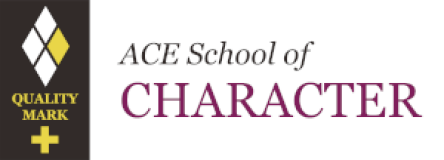Religious Studies (Philosophy and Ethics)
Staff
Ms Duhig - Head of Department
Miss Hassan - 2i/c
Mrs Adams - 2i/c
Mr Madigan - Head of Aspirations
Ms Stylianou
Statement of Intent
Famously it has been said that: “God is dead” but not at Barking Abbey school where nearly 90% of students have expressed a belief in some form of a divine being. Therefore the RE curriculum at Barking Abbey school intends to develop in students an understanding of a religious, ethical, moral understanding of the world as well as a secular/humanist of the world around them. This will involve the study of different religious and non-religious interpretations of the world as well as understanding how religious interpretations feed into ethical and moral reasoning on a wide range of issues in society and on the lives of individual students. Students are encouraged in this by exploring their own views and beliefs as well as understanding and respecting the beliefs and what is held sacred by others. At the same time students are encouraged to consider a range of ethical and moral issues in society and how a religious perspective of life influences an outlook on these matters.
By the age of 14 students are expected to have a grasp of the basics of a range of religions in terms of beliefs and practices. This in the main will focus on the six main religions found in the United Kingdom which are Christianity, Islam, Judaism, Sikhism, Hinduism and Buddhism Students will be able to use specialist vocabulary, identify differences within some religious traditions and relate religious teachings and beliefs to a number of moral and ethical issues such as the sanctity of life and forgiveness. Students are expected to be able to offer opinions, respect the views of others and as well as introducing religious perspectives.
By the age of 16 students are expected to make an in-depth study of two major religious traditions in the United Kingdom and the differences which exist within them. They study Islam with an emphasis on the Sunni and Shi’ah traditions and Christianity with an emphasis on the Catholic and Protestant traditions. At the same time they study a range of ethical issues and a range of religious perspectives on them. This will include issues such as prejudice, war and violence, relationships, crime and punishment and wealth and poverty. Students are encouraged to relate these themes and differences to their own lives and well as developing a societal and global view. They are also encouraged to understand that a humanist perspective also exists for many.
By the age of 18 students are expected to make a serious academic study of the Philosophy of Religion, Ethics and The Development of Islamic Thought with a view to meeting the criteria of the OCR course in Religious Studies.
Curriculum Content
Key Stage 5
Students can elect to follow a 2 year A Level course in Religious Studies (Philosophy and Ethics). The course followed is run by OCR:
https://www.ocr.org.uk/qualifications/as-and-a-level/religious-studies-h173-h573-from-2016/
During the course students have to study 3 modules:
- The Philosophy of Religion
- Ethics
- Developments in Islamic Thought







